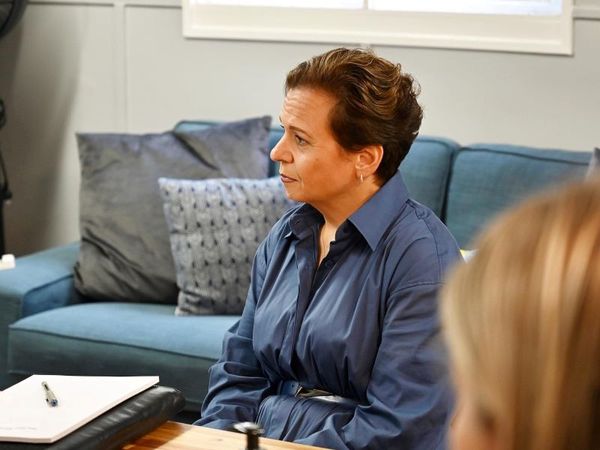
The federal government will not force adult websites to bring in age verification following concerns about privacy and the lack of maturity of the technology.
On Wednesday, the communications minister, Michelle Rowland, released the eSafety commissioner’s long-awaited roadmap for age verification for online pornographic material, which has been sitting with the government since March 2023.
The federal government has decided against forcing sites to bring in age verification technology, instead tasking the eSafety commissioner, Julie Inman Grant, to work with the industry to develop a new code to educate parents on how to access filtering software and limit children’s access to such material or sites that are not appropriate.
“It is clear from the roadmap at present, each type of age verification or age assurance technology comes with its own privacy, security, effectiveness or implementation issues,” the government’s response to the roadmap said.
The technology must work effectively without circumvention, must be able to be applied to pornography hosted outside Australia, and not introduce the risk to personal information for adults who choose to access legal pornography, the government stated.
“The roadmap makes clear that a decision to mandate age assurance is not yet ready to be taken.”
The new tranche of codes will be developed by eSafety following the implementation of the first set of industry codes in December this year.
The government will also bring forward an independent statutory review of the Online Safety Act in 2024 to ensure it is fit for purpose and this review will be completed in this term of government. The UK’s approach to age assurance will also be monitored as the UK is “a key likeminded partner”.
In the roadmap, eSafety’s research found of the 75% of 16 to 18-year-olds who said they had seen online pornography, nearly one-third had seen it before the age of 13, and nearly half between 13 and 15.
The report suggested to trial a pilot of age assurance technologies, but this was not adopted by the government. The report also noted the government’s development of a digital ID in the wake of the Optus and Medibank data breaches, but said it was not suggesting the government ID be used for confirming ages on pornographic websites.
The roadmap said there was also a gap in sex education, particularly for LGBTQ+ people, with online pornography filling the place in many cases.
“In our research, [participants who identified as lesbian, gay or bisexual] were also significantly more likely to say there were some positive effects of online pornography on young people learning about sex and exploring sexuality than straight participants. Some stakeholders reflected this may be due to a lack of other representations or learning sources for young LGBTIQ+ people – including a lack of inclusive sex education in schools.”
The government said it had funded $83.5m over six years for age-appropriate, evidence-based respectful relationships education.
While Pornhub remained the most popular pornographic site for Australian users, the report also noted that Australian-based industry bodies reported the local creators tended to be female or LGBTQ+, operating as sole traders.
“Between these two ends of the spectrum are a variety of businesses with different business models and levels of size, maturity, capacity, and capability to adopt technological measures to promote children’s safety. What constitutes appropriate steps for one provider might create an undue burden for another.”
Rowland said the roadmap underscored the value of the industry codes and developing standards to keep children safe.
“The government supports this approach, and will work with the regulator to ensure the full and successful implementation of the Online Safety Act,” she said.
“While the government awaits the outcome of this process, the digital industry is on notice that we will not hesitate to take further action should it fail to keep children safe.”









